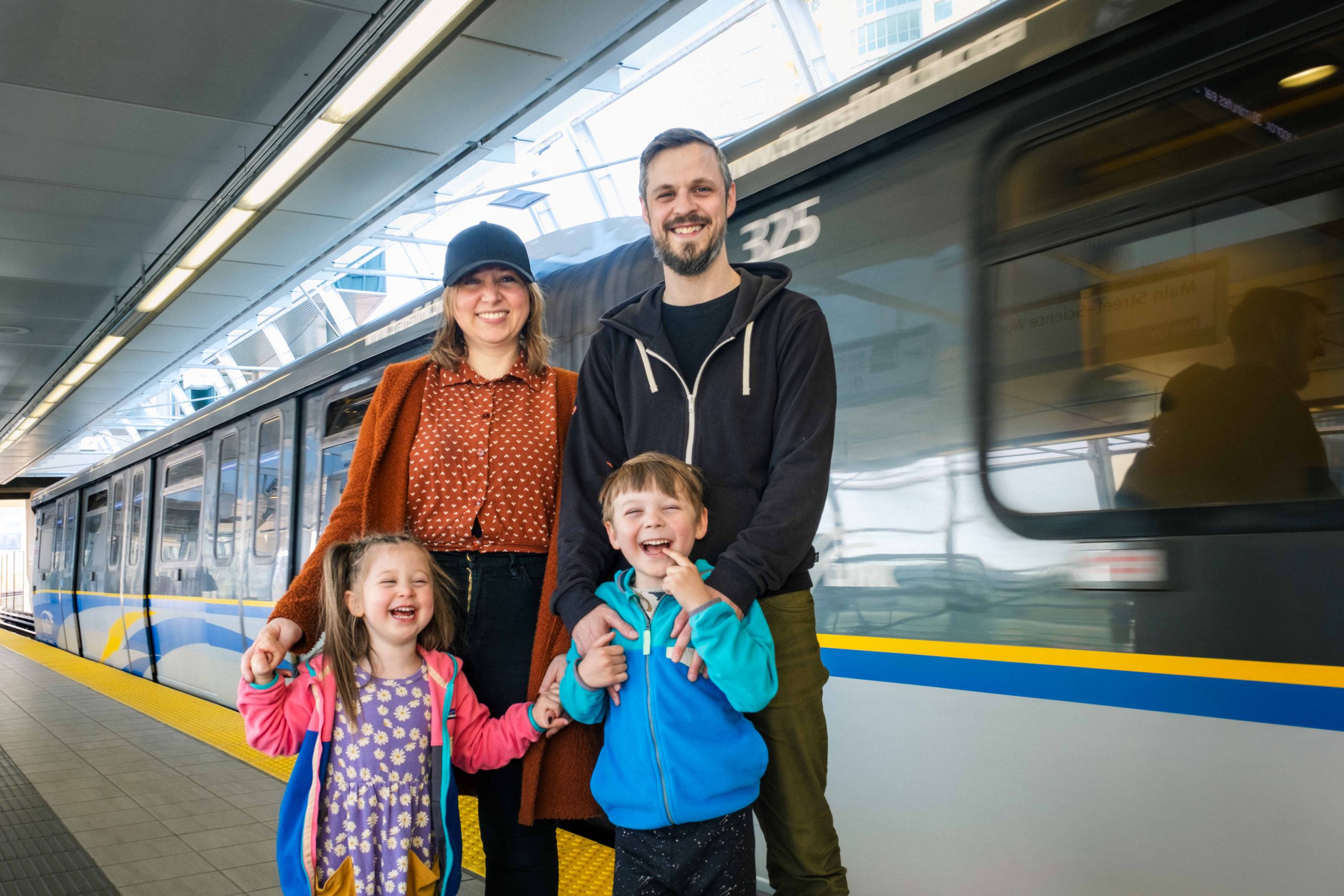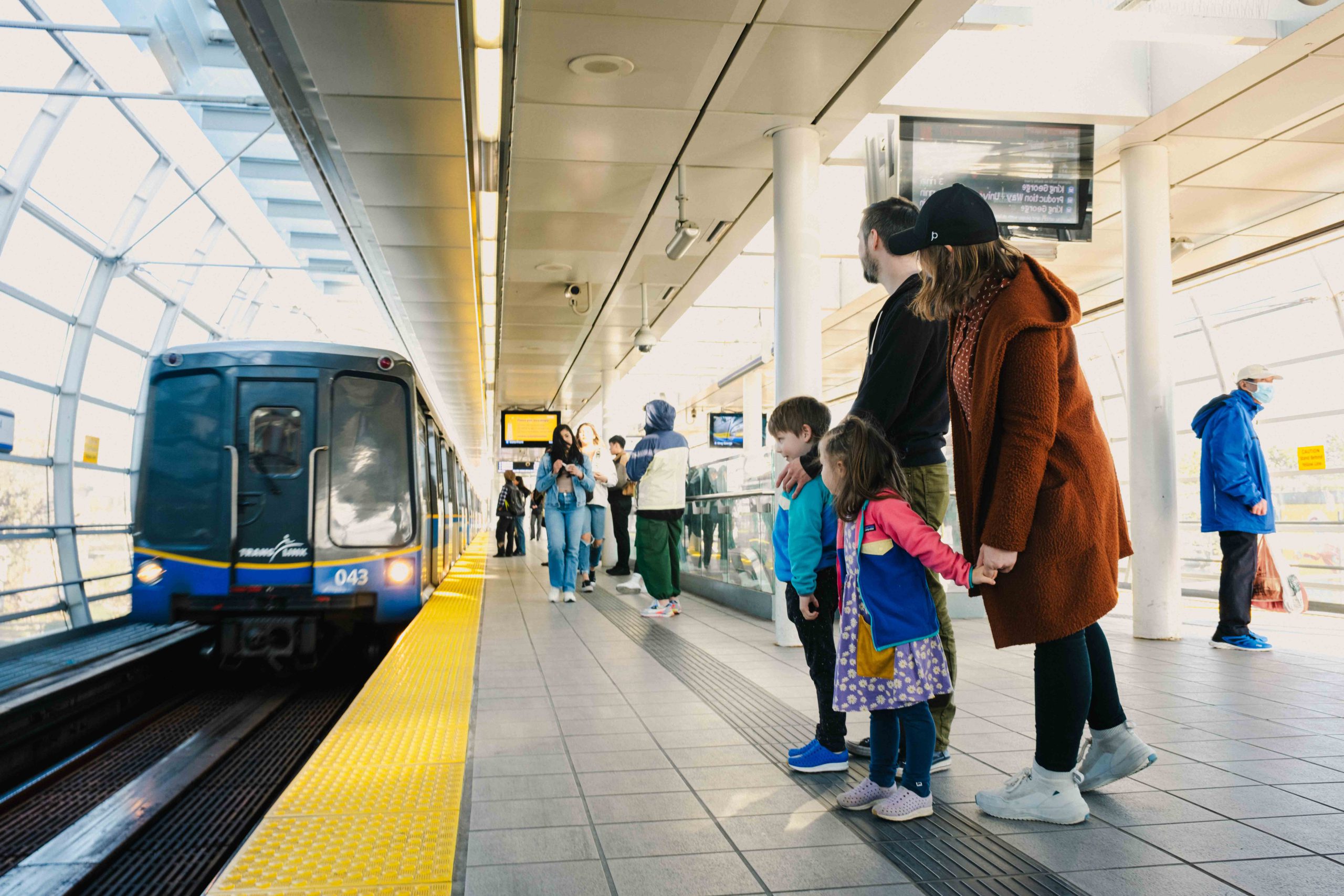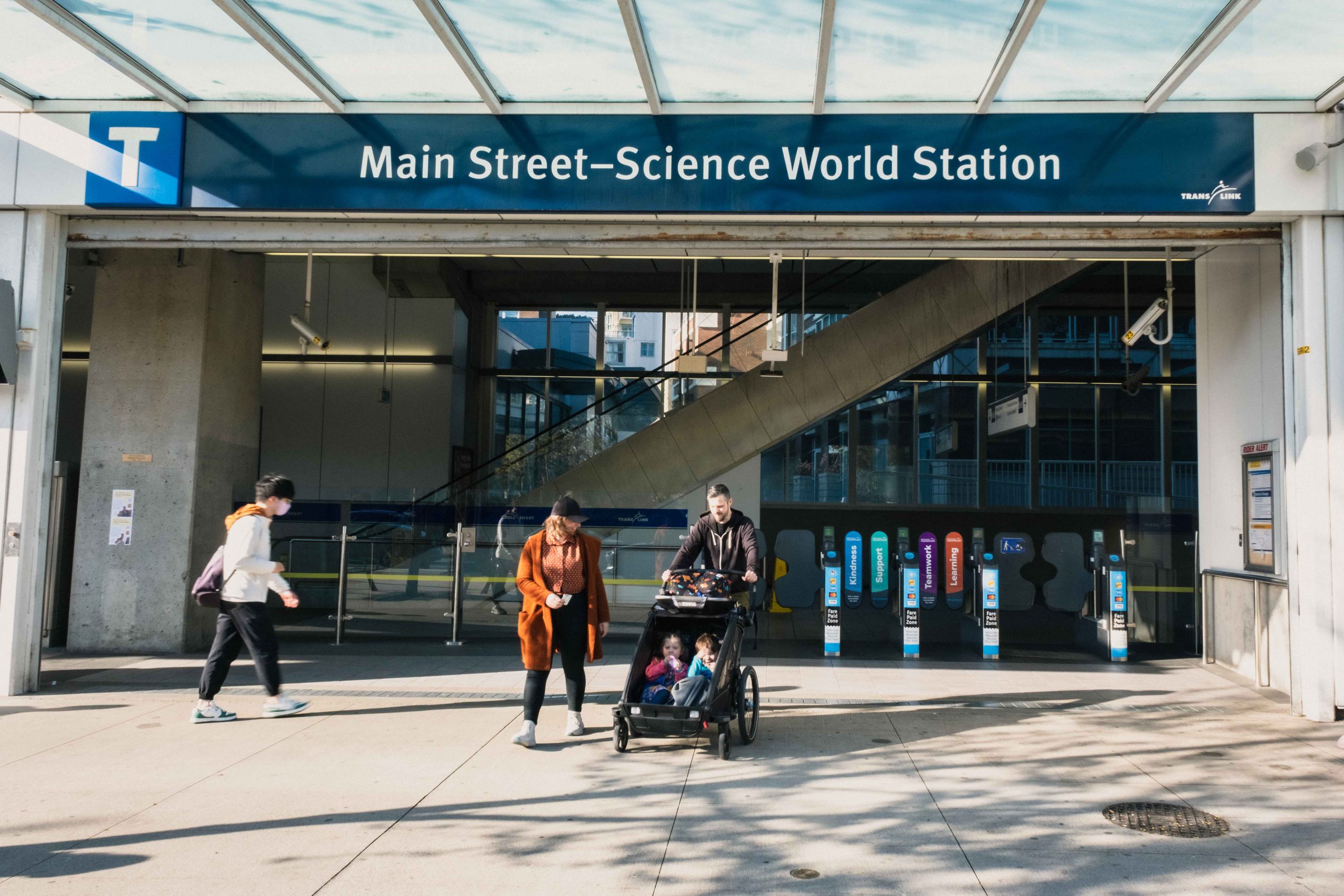Two kids, no car: how this Vancouver family saves $8,000 annually going car-free
Two kids, no car: how this Vancouver family saves $8,000 annually going car-free

Wiebke Bohm, originally from Germany, has lived in Canada since 2015. She works as a senior lighting technical director and lives with her family in downtown Vancouver.
“With transit, taxi and car sharing services, and living walking distance to work, we never miss owning a car. I also try to live environmentally friendly.”
Together with her husband and two children, aged three and five, they fully embrace a multimodal lifestyle. Instead of owning a car, they take transit, bike, and use carsharing to keep their carbon footprint minimal.
A conscious choice
For the Bohm family, the decision to live car-free isn’t just about convenience — it’s a conscious choice driven by their commitment to environmental stewardship.
It’s not that they can’t afford a car; rather, they actively choose not to own one.
The family prioritizes living sustainably and practices practical steps to reduce her carbon footprint like taking the SkyTrain. They recognize the impact of excessive car use on the planet.

Navigating parenthood without a car
Their journey to a car-free lifestyle started by challenging a common notion: that you need a family car.
“One of my co-workers told me when I got pregnant with my first child, a car was the first thing I would buy,” says Wiebke. “I looked at him and said, ‘No I won’t’. And I’ve stuck to it!”
Parenthood often prompts car ownership, especially when you have two children. However, the Bohm family has successfully navigated the city using bicycles, public transit, and car-sharing services.
Wiebke says, “We take SkyTrain and bus around 10 to 20 times a month. We don’t use the bus as often as other transit modes as our double stroller or bike trailer takes up quite a bit of space.”
She also added that their travel options depend on the season.
“We take Aqua taxi in the summer months,” says Wiebke. “In winter, we use more carsharing services to get by.”
One of Wiebke’s travel hacks is to use a stroller to carry her child seats to car-share vehicles. As nature-goers, the Bohms often use inter-city bus services when heading up to Squamish, Whistler, and Grouse Mountain.
Championing affordable climate action
Tackling climate change also yields another big benefit — saving money. Wiebke says she spends about $819 per year on transit for a family of four.

Moreover, since kids 12 and under ride free, the Bohms continue to save even more money, making their transit-oriented lifestyle even more cost-effective.
Aside from riding transit, Wiebke’s family also travels around town with an electric cargo bike, which they often use for grocery shopping. They also spend about $40-to-60 a month on carsharing.
All together, by opting out of car ownership, the Bohms could be saving around $8,000 per year. But that’s not what motivates them.
“Our motivation is not financially driven as we could afford a car,” says Wiebke. “We simply choose not to — because it fits our lifestyle and we are convinced that we have less of an environmental impact if we don’t.”
Overcoming challenges
Living car-free in a world designed for automobiles presents challenges, especially with kids. From coordinating schedules to ensuring everyone has what they need for each outing, the Bohm family acknowledges the existing barriers to a transit-oriented lifestyle. However, their perseverance and dedication to their sustainability values keep them going.
Join the movement for everyday, affordable climate action and take Transit for the Planet. Learn more about how you can cut carbon and grow your savings at translink.ca/transitfortheplanet.
Sean Park







Good luck when you kids start sports , dance , gymnastics or other activities. Life gets more complicated
try doing that when you live in Pitt Meadows, Langley , or the tri-cities with their crappy bus routes and schedule. especially during winter which is technically 9 months long here.
plus … no road trips ever!
Good for them! I don’t have a car either and I realize that not everyone can do without one, but I where I live in
Vancouver allows plenty of other options to get around.
Awesome! Good for them. Not sure why all the negativity in the comments.
These guys are living right. We could all learn from them.
Would it be challenging at times? I’m sure it is but they’re proving that it’s doable.
To those saying sports and road trips are impossible, you may have overlooked that they use car sharing services when necessary.
Still wouldn’t work for you? Fine. But we can give these guys some credit for doing what’s right for the planet.
Can be done, but their kids are young. As one person said, wait until all the other activities kick in or they want to be part of the school’s sport team and ride sharing becomes an issue. Any article can be written to give the viewpoint the author wishes to bring across. This article would never fly with a German couple and two kids living in Prince George.
Incredibly Vancouver Centric please consider the feelings of those in the lower mainland such as Langley and Aldergrove